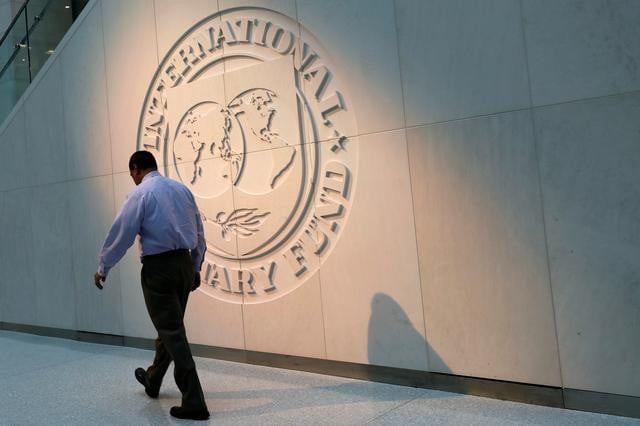Budget deficit to surpass IMF’s target
Fund may ask govt to cut expenditures or take revenue measures

Pakistan’s revised estimates show that its primary budget deficit will breach the recently agreed limits with the International Monetary Fund (IMF) and inflation will remain high but there is positivity in economic growth rate trajectory.
The government has shared its initial assessment of the economy with the IMF during ongoing talks, sources said.
However on Tuesday, it postponed a scheduled meeting between the finance minister and Nathan Porter, new Mission Chief of the IMF, due to pressing engagement of Shaukat Tarin.
The government’s economic and legal team had another meeting at the same time in which the ministers were already committed to the IMF mission for kicking in a crucial round of talks.
The Tarin-Porter meeting was important to set the tone for the main round of talks.
Pakistan and the IMF are negotiating under the seventh review of the programme and talks are planned to be held from March 3 to 11. If both sides converge in their views, the IMF board may approve around $960 million loan tranche next month.
However, a senior official of the finance ministry said that Tarin and the IMF mission chief would meet today (Wednesday).
“The authorities and the IMF continue to discuss recent developments and measures to promote macroeconomic stability in Pakistan," said Esther Perez, country representative of the IMF
As against the requirement of showing Rs25 billion primary budget surplus, the sources said, there could be a primary budget deficit of over 1% of the gross domestic product (GDP) even at the revised base of the economy.
This assessment may change the tone of Pakistan and IMF talks, as the fund may ask the government to either cut expenditures or take more revenue measures. The IMF has not yet shared its assessment, they added.
The primary budget surplus is a measure, which shows that revenues are more than the expenditure after excluding the interest payments.
The numbers deteriorated after Prime Minister Imran Khan announced a relief package last week despite initial opposition by the finance ministry. The circular debt was another problematic area during the talks, as the energy ministry numbers did not add up, said the sources.
During initial discussions, the IMF also inquired about the fiscal impact of expanding the scope of the Kamyab Pakistan Programme across the country.
The government has also shared its assessment about economic growth prospects with the fund. The assessment was that the 4.8% economic growth target would be achieved, as it expects all the three main sectors to post a healthy growth rate.
However, the central bank’s assessment was below the federal government projections.
But there were certain challenges which might impact the growth prospects such as increasing trend in global oil and food prices, which may affect domestic inflation, widening current account deficit due to constantly growing import volume of energy and non-energy commodities.
For the next two years, the finance ministry sees over 5.6% and over 6% economic growth rate, respectively.
Inflation remains a concern, as the finance ministry expects the consumer price index to remain above 10% in the current fiscal year while also updating its medium-term inflation forecast.
The federal government sees medium-term inflation range at 8% to 9% with next fiscal year’s inflation around 9%.
However, the State Bank of Pakistan (SBP) in its monetary policy announcement showed the medium-term range of inflation at 5% to 7%.
“While current real interest rates on a forward-looking basis are appropriate to guide inflation to the medium-term range of 5-7%, support growth, and maintain external stability, the Russia-Ukraine conflict has introduced a high degree of uncertainty in the outlook for international commodity prices and global financial conditions,” according to the statement.
The SBP decided to maintain the policy rate at 9.75%, saying that the outlook for inflation has improved following the cuts in fuel prices and electricity tariffs announced last week as part of the government’s relief package.
At the same time, high-frequency indicators suggest that growth continues to moderate to a more sustainable pace, it added.
Published in The Express Tribune, March 9th, 2022.
Like Business on Facebook, follow @TribuneBiz on Twitter to stay informed and join in the conversation.



















COMMENTS
Comments are moderated and generally will be posted if they are on-topic and not abusive.
For more information, please see our Comments FAQ